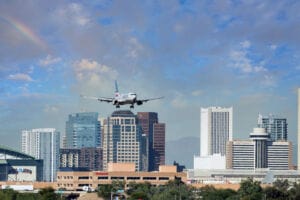Late last month, the Federal Deposit Insurance Corporation (FDIC) released data showing that Arizonans have now deposited 11.5% of their money into local banks or community banks. This is a significant jump up from 3% in 2013 and 8.5% recorded in June of last year.
With only 13 banks headquartered in Arizona, the state has been called a “banking desert,” leaving eight counties with no community bank representation at all and small businesses with fewer borrowing options.
READ ALSO: Ranking Arizona: Top 10 SBA lenders for 2021
“Arizona’s lack of community banks, especially in our rural communities, significantly limits access to capital and borrowing opportunities for small business owners,” says Kimber Lanning, CEO of Local First Arizona. “When the pandemic hit, these entrepreneurs were left with very little financial support and resources during one of the most turbulent times for their business.”
According to the Small Business Administration, community banks served nearly 60 percent of Paycheck Protection Program loans to help small businesses retain more than 3.7 million employees. Meanwhile, big banks distributed just 17% of their Payroll Protection Program funding to small businesses.The FDIC report also shows an 18% drop in Arizona’s deposits with Chase, Wells Fargo and Bank of America, down from 82% in 2015 to 64% this year.
Local First started the Move your Money campaign in 2013 and has worked diligently to bring attention to the importance of local banking while encouraging people to close their big bank accounts and move their deposits to a locally-based bank or credit union. “
When a deposit is made in any financial institution, that money is then loaned back out somewhere to turn a profit for the bank. Local community banks are chartered here and lend here, whereas global banks take Arizona’s money and largely invest it somewhere else in the world,” explains Lanning.
So what does this mean for Arizona’s small businesses and communities? James Christensen, president and CEO of Gateway Bank headquartered in Mesa, Arizona, sees the opportunity and the transformation taking place in the community. “The continued shift in overall deposits provides more opportunities to our local business owners, underbanked and unbanked neighbors,” he says. “Local banks like ours have a true focus on investing into the communities we serve, which has positively impacted our business climate for those underserved by national institutions.”
According to the FDIC, more than 7 million Americans remain either underbanked or completely unbanked. To learn more about Arizona’s local banking options or how to Move Your Money, visit localfirstaz.com.



